IUC-QNU - From August 20 to August 29, the leadership delegation of Quy Nhon University made a visit and engaged in activities at three leading research universities and two top applied universities in the Kingdom of Belgium. This initiative aims to strengthen the collaborative relationship between Quy Nhon University and its partners within the framework of the Institutional University Cooperation (IUC) program funded by VLIR-UOS (Belgium).
IUC-QNU Program – Enhancing Capacities Across Multiple Domains
The IUC-QNU program is a significant international collaboration aimed at enhancing the overall capacity of Quy Nhon University, supported by academic assistance from universities in the Flanders region of Belgium and financial backing from the Belgian government. This program has a dual purpose: to sustainably improve the livelihoods and living conditions of residents in the coastal provinces of Central Vietnam and the Central Highlands, while also enhancing the university's training, research, and community service capabilities in the fields of agriculture, food, environment, and renewable energy. Unlike previous cooperation programs, the IUC focuses not only on training and research but also on addressing practical challenges faced by the university and local communities in the near future.
Among the seven projects under the IUC-QNU program, two are dedicated to strengthening the institutional capacity of Quy Nhon University. These projects aim to modernize the university's management, administration, and student services by providing digital services, e-learning, library enhancements, improving safety, managing laboratories, and establishing a sustainable waste management system. The remaining five projects support scientific research activities, international collaboration in training, and community service. The objectives of these projects are to apply scientific and technological innovations to enhance community resilience in areas related to natural disasters; improve livestock and crop production in rural regions; enhance the sustainability of supply chains; and increase the economic value and income of fruit farmers (such as avocado, durian, dragon fruit, and local apples) in the coastal provinces of Central Vietnam and the Central Highlands."
Professional Exchanges and Learning from Leading Universities in Belgium
During the visit and work engagement, the delegation from Quy Nhon University conducted discussions with partners at three prominent Belgian universities: KU Leuven University, Hasselt University, and Ghent University, alongside two applied universities, HOGENT and VIVES. Beyond the goal of exchanging professional insights, the delegation had the opportunity to assimilate and learn from models of information technology systems, learning management, and laboratory management from their Belgian counterparts.
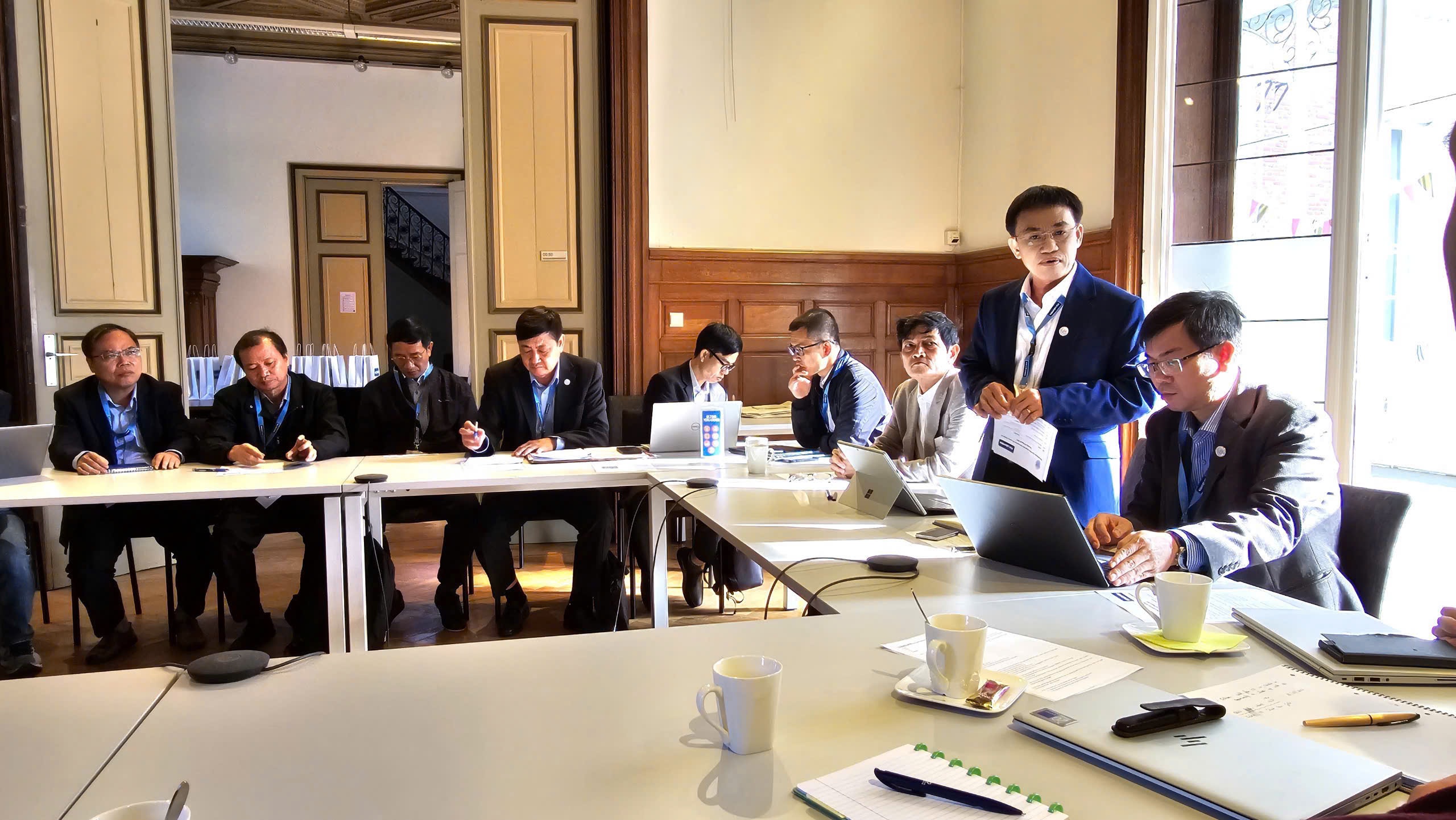
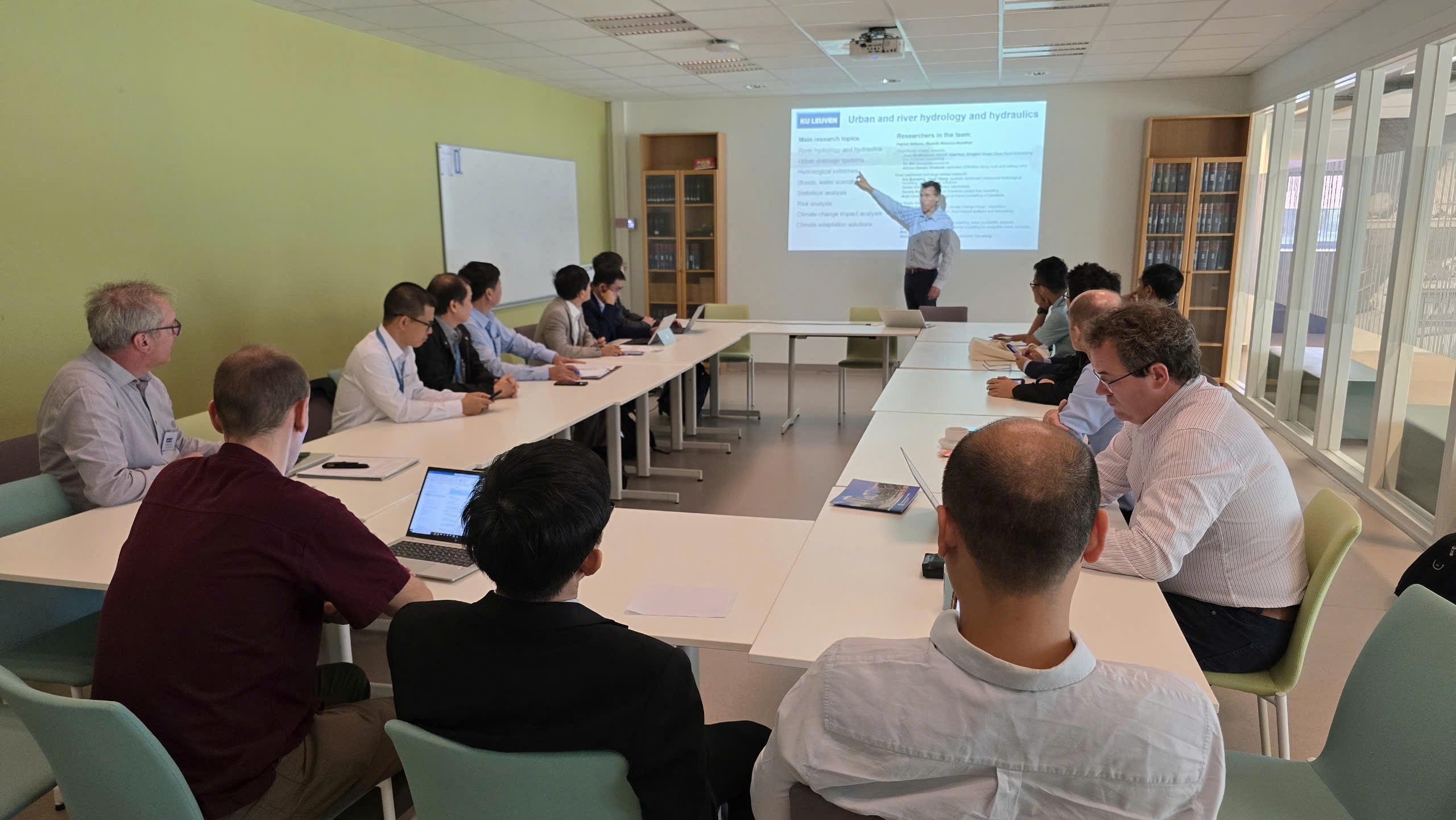
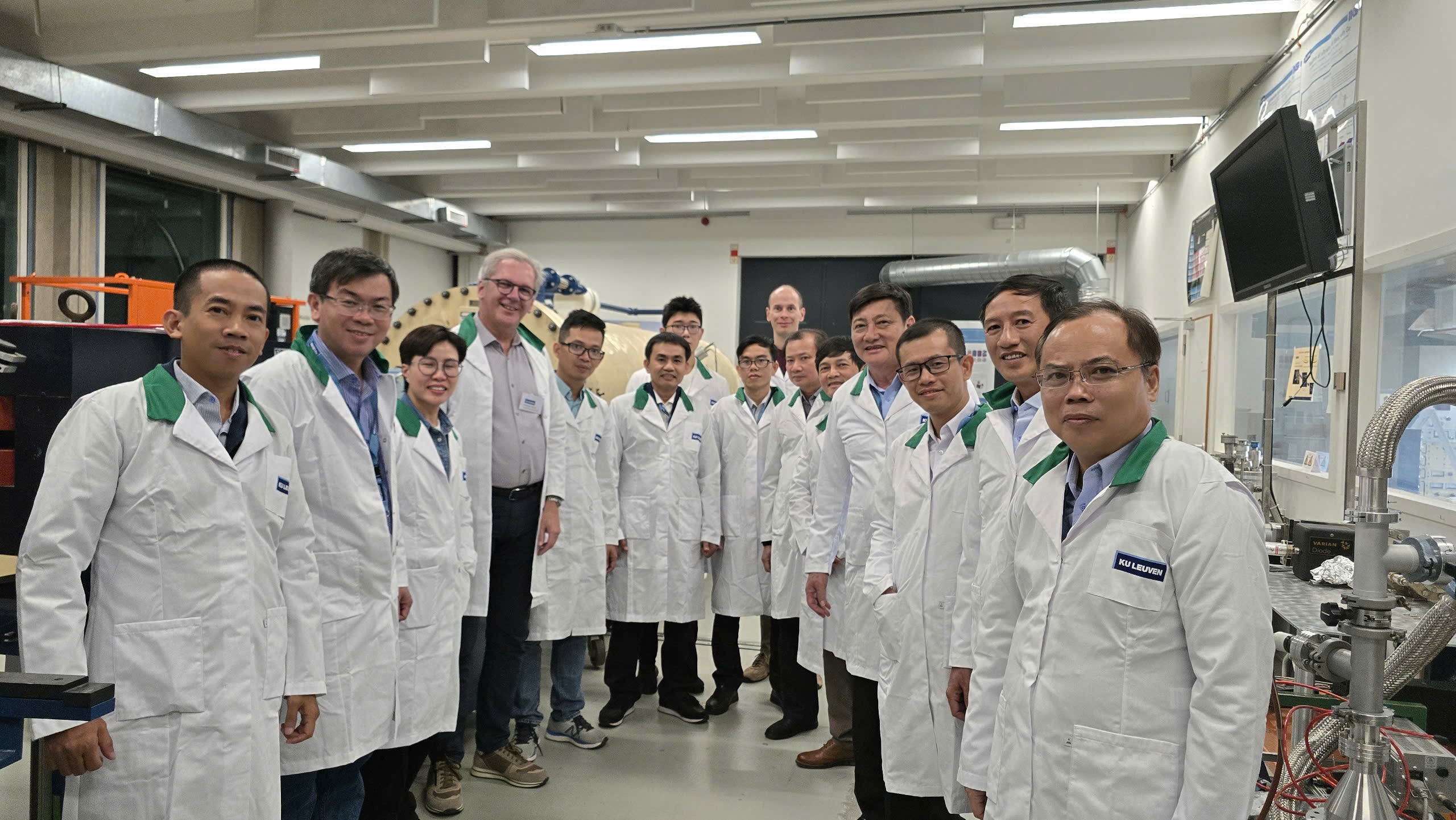
Collaborating with KU Leuven University, the delegation was introduced to the structure of the information technology (IT) system, the Learning Management System (LMS), and various e-services available to students from enrollment through to graduation. The team also engaged in discussions with experts regarding human resource management and laboratory operations, culminating in the signing of a Memorandum of Understanding (MoU) to enhance bilateral cooperation between Quy Nhon University and KU Leuven University.
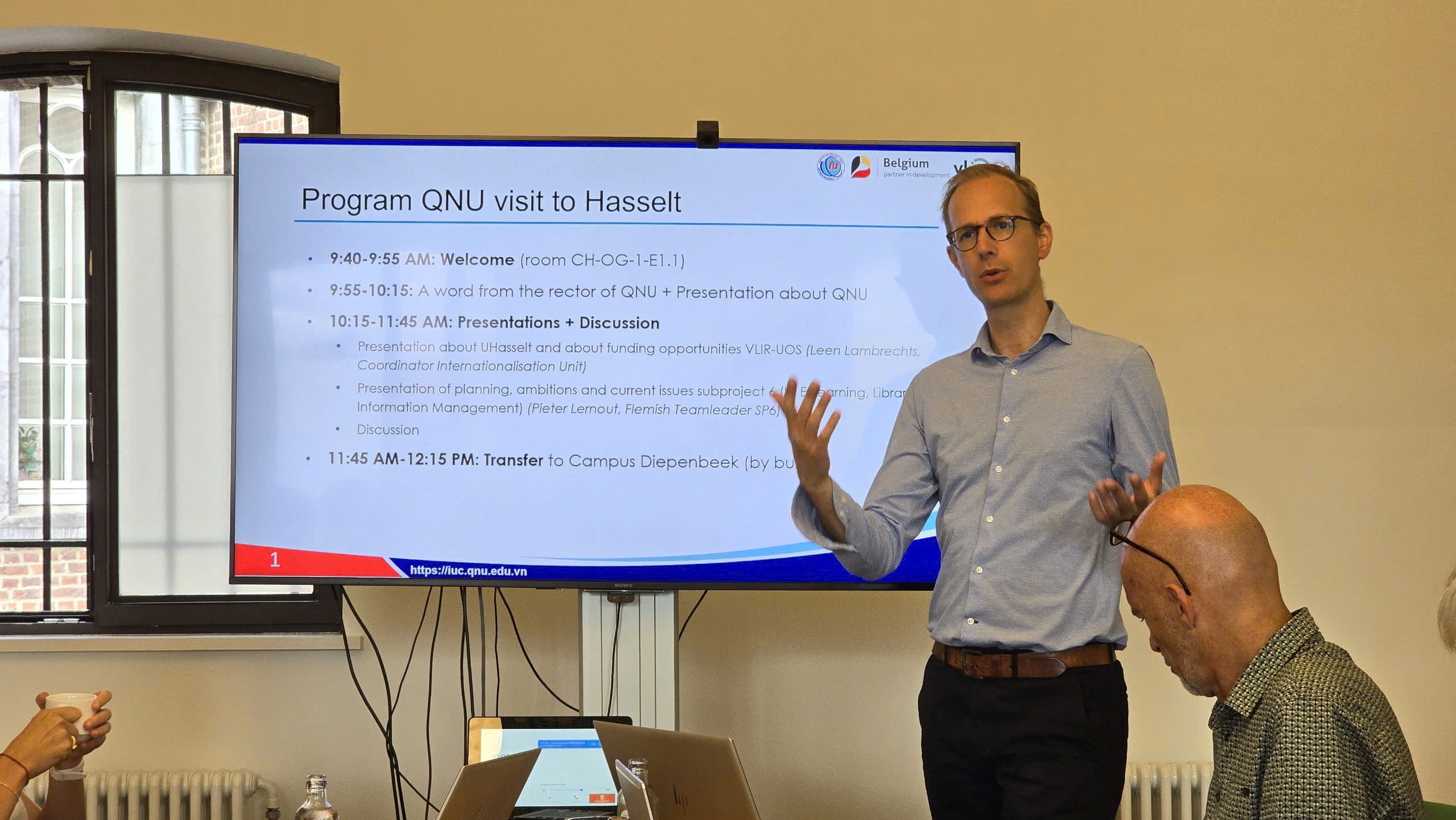
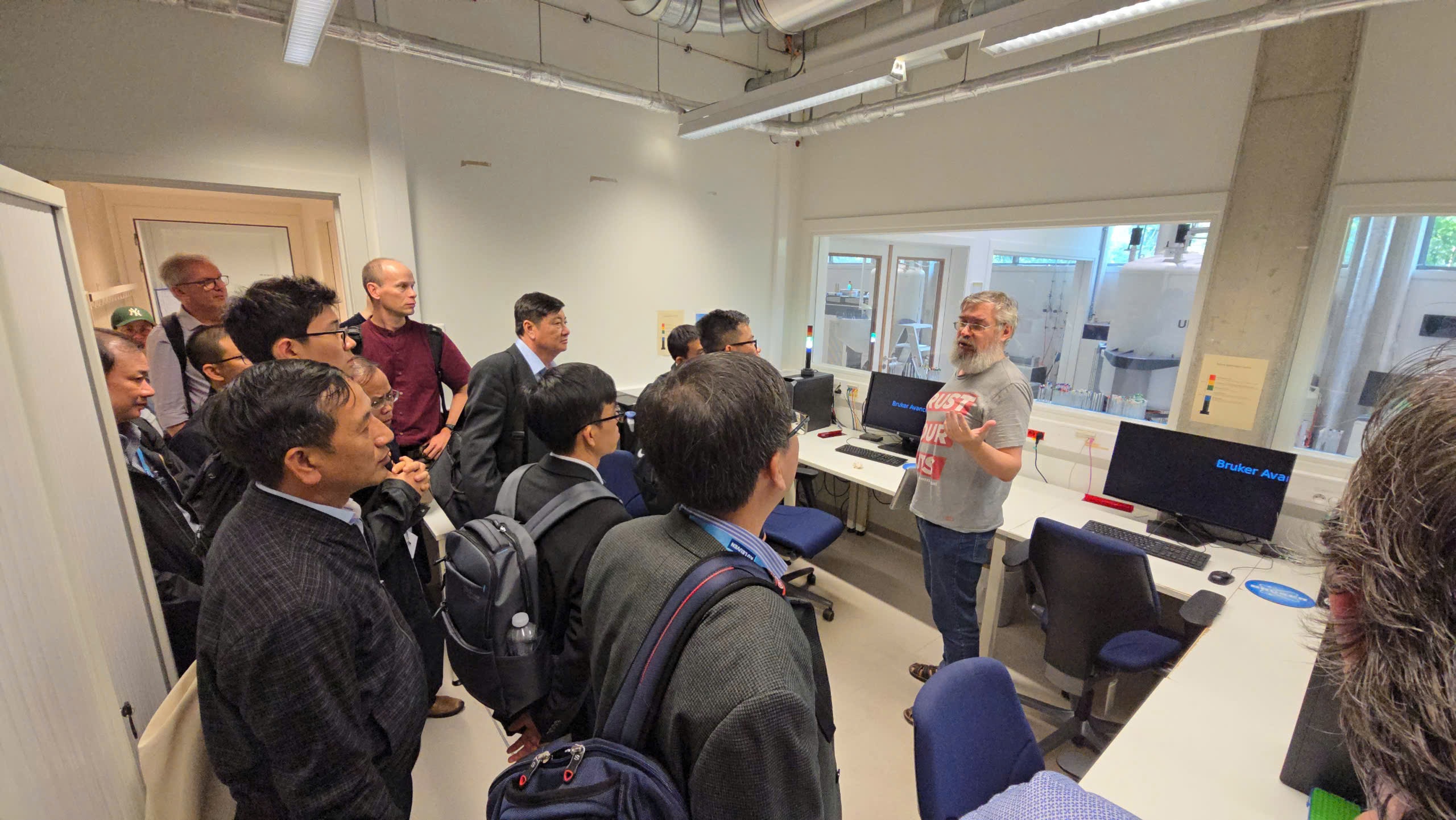
During this significant mission, the delegation visited and worked at Hasselt University, touring the Science Tower and the central library. Additionally, the Quy Nhon University team engaged in discussions regarding potential future collaboration projects, particularly in the fields of IT and e-learning, with representatives from Hasselt University.
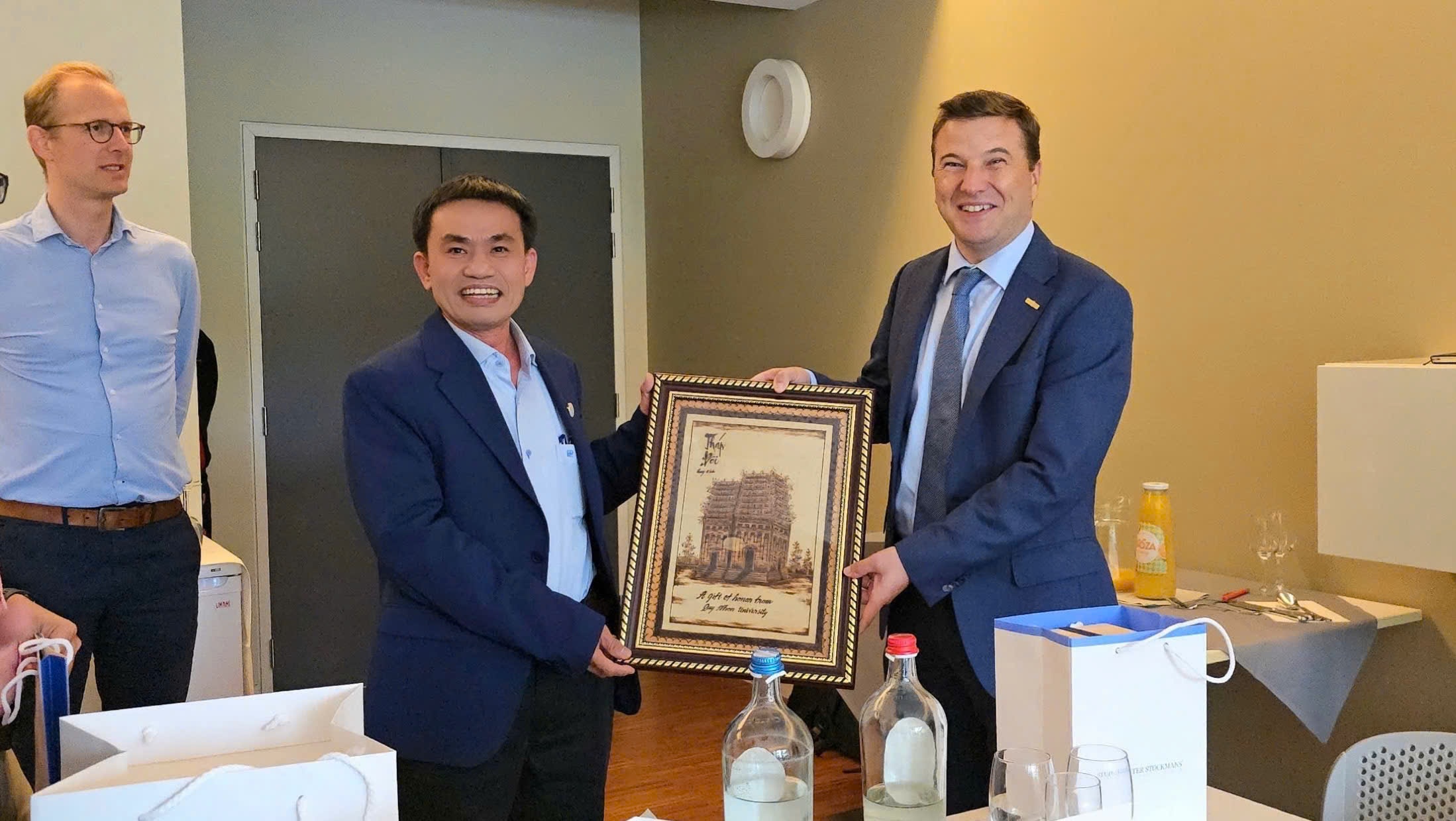
At HOGENT University of Applied Sciences, the delegation was guided on a tour of the library and various chemistry and biology laboratories, exchanging experiences on the establishment of regulations and policies for laboratory management. On the same day, the team also held discussions with Ghent University. In a spirit of learning and information sharing, they focused on exploring opportunities for research collaboration and student exchanges.
The mission concluded with a meeting at VIVES University of Applied Sciences, where the delegation was introduced to and toured the e-learning system and blended learning approaches, while also discussing future collaboration plans.
Throughout the week-long mission, the leadership and staff of Quy Nhon University had the opportunity to exchange and share information across various fields with leading universities in Belgium. This trip not only aimed to enhance the management capabilities in information technology and laboratory operations but also closely aligned with the goals and effectiveness of the comprehensive development of five other scientific research projects at Quy Nhon University, creating opportunities for expanded research and training collaborations in multiple domains.
The insights gained from this mission will be integrated into training programs, providing opportunities for students and faculty to engage in highly applicable research activities that address practical challenges faced by local and national contexts. Notably, collaboration with top Belgian universities will enable Quy Nhon University to access advanced knowledge and technology, fostering a dynamic and innovative academic environment that attracts more talented students. This is also a crucial factor in affirming the university's position on the map of higher education in Vietnam and internationally.
For more detailed information about the IUC-QNU Program, please visit (https://iuc.qnu.edu.vn/)
Nguyen Thanh Dat - Vu Thi Ngan
Vo Thien An